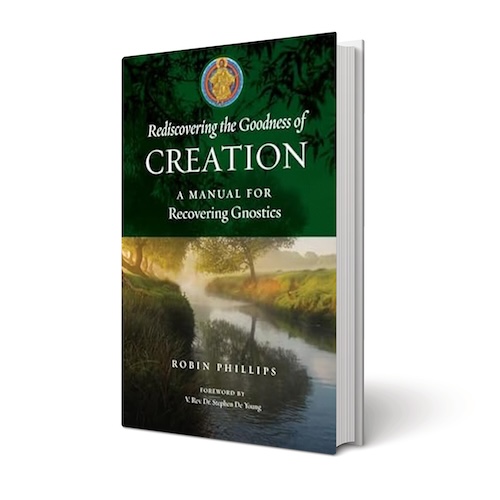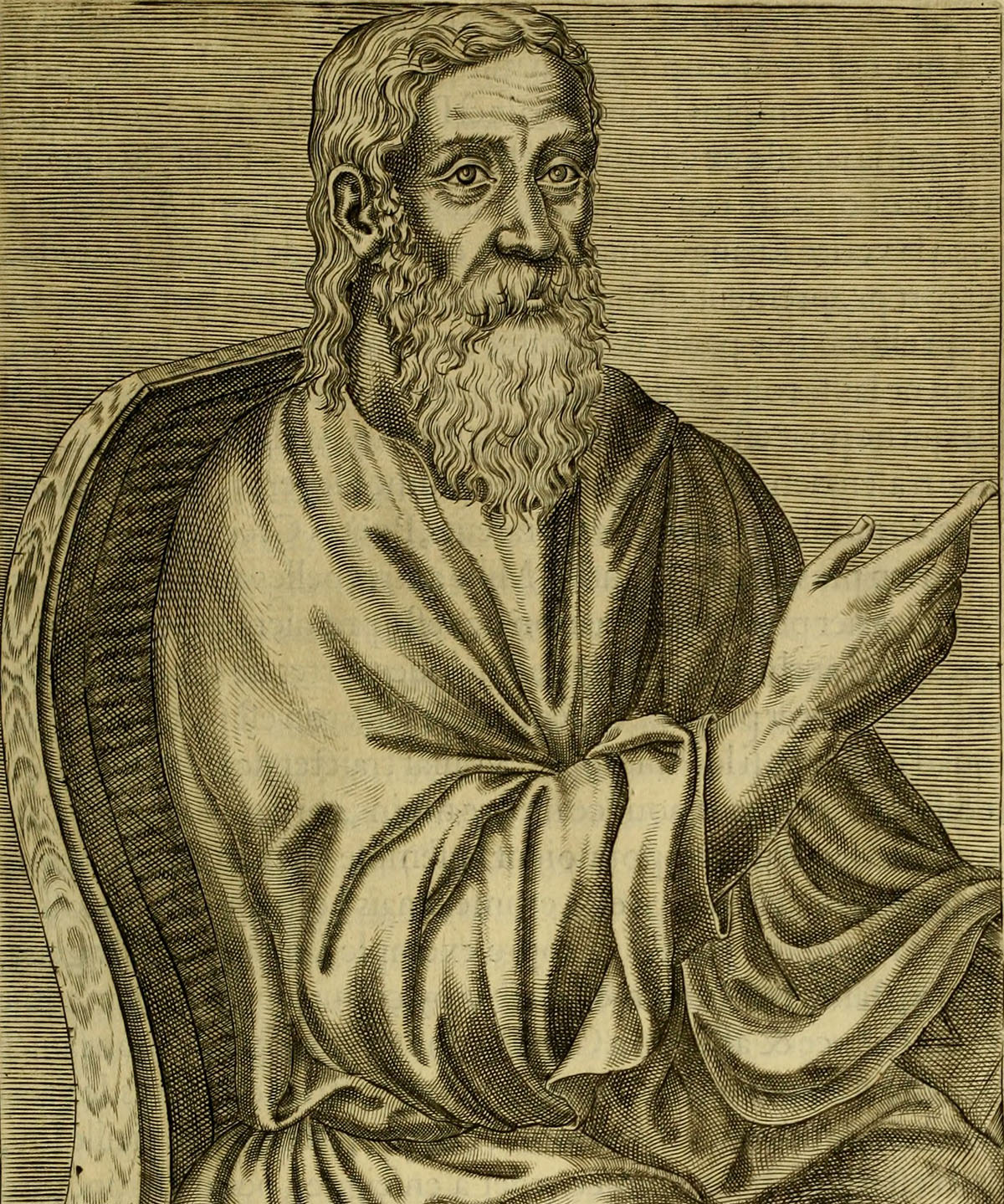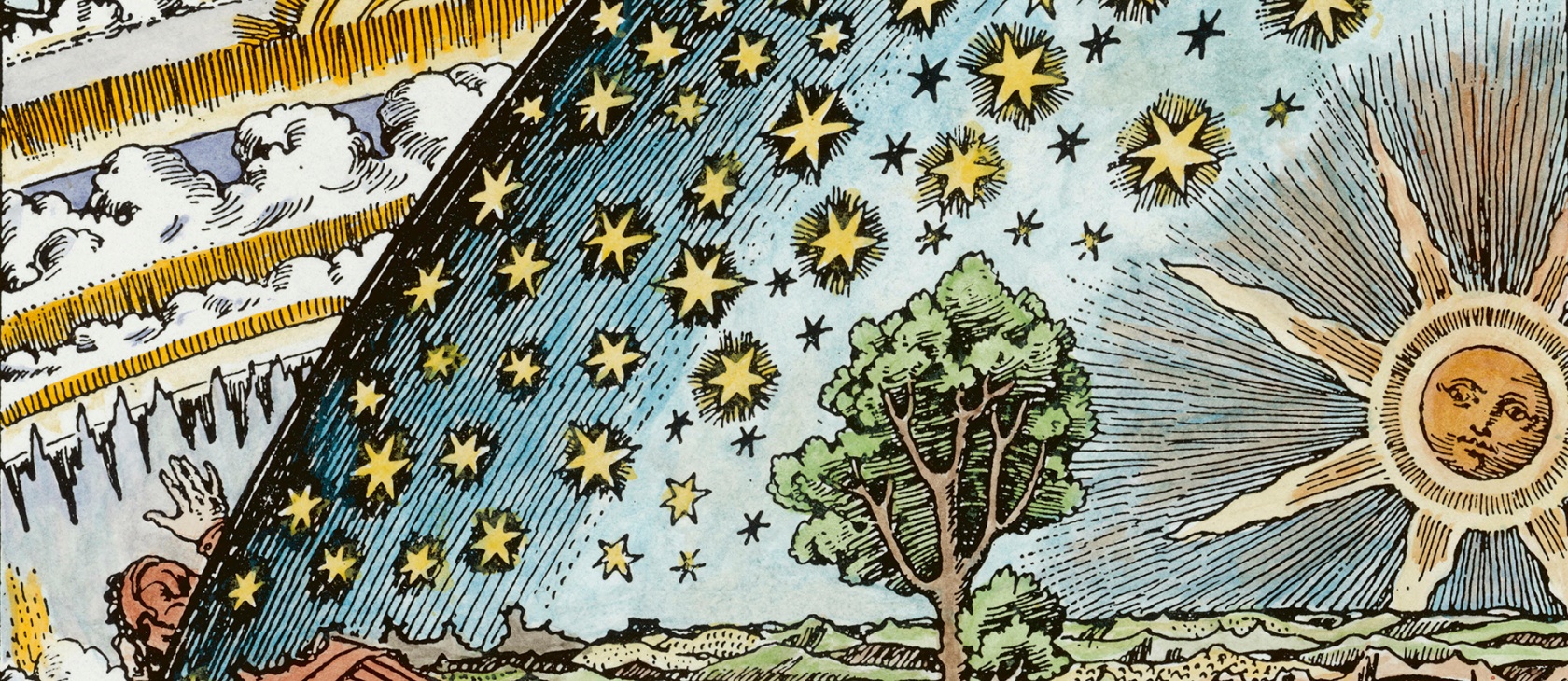Judging by its subtitle, I must confess that I had low expectations for Robin Phillips’ Rediscovering the Goodness of Creation. Some conservative cultural commentators, the secondhand Eric Voegelins of the world, use the term Gnostic in imprecise and polemical ways, making of it a theological black box into which they put everything they do not like, justifying their dislike with religious zeal. Suddenly, things like socialism and capitalism, environmentalism and climate change, ascetic sexual ethics and promiscuity—each choice depending on the commentator’s political biases—all become not just vicious or mistaken but heretical. This is unfortunate since, as Voegelin knew, Gnosticism authentically existed only once, in several distinct schools of thought, and genuine likenesses to it can be found in some, though not all, modern ideologies, even in the teaching and practices of some contemporary Christian traditions.
It may be time to purge your inner Gnostic and appreciate God’s good creation. Robin Phillips—and the Stoics—can lend a hand.

By Robin Phillips
(Ancient Faith Publishing, 2023)
Happily, Robin Phillips is no secondhand Voegelin. In his introduction, he offers a helpful clarification: “Our topic is the goodness of the world, God’s promise to bring creation to perfection, and what this means for you and me today.” This relates to Gnosticism only by contrast: “Given that various heresies (such as Gnosticism, Manichaeism, Docetism, et cetera) have led to misunderstandings about God’s purpose for creation and humanity’s role in it, we must address these misunderstandings as we go along.” Furthermore, Phillips admits to being a “recovering Gnostic” himself, and not just metaphorically. True, his experience with evangelicalism involved many alarmingly Gnostic ideas and practices, but he also, for a time, was a member of an actual, modern-day Gnostic cult in Britain, where sermons were preached on the Gospel of Thomas and other ancient, apocryphal texts. He demonstrates a familiarity with these sources and, more importantly, the patterns of thought and detrimental habits of life that follow from genuine Gnostic teachings. His “manual” is as much autobiographical as instructional, reminiscent of the Confessions of St. Augustine, whom Phillips rightly identifies as “perhaps the greatest recovering Gnostic of all time.”
Phillips’ own story even begins with two chapters sporting “Confessions” in their titles, detailing his journey from evangelicalism to actual Gnosticism, through Calvinism, and finally to the Eastern Orthodox Church. The benefit of this approach is that while some might object that neither evangelicalism nor Calvinism is Gnostic or Gnostic-leaning, that was, nevertheless, Phillips’ experience of these variants of the Christian faith. Yet experience is not an argument, and it would be an error for him to generalize from his particular encounter with these traditions. At the same time, critics cannot deny his experience. In fact, readers who have had similar experiences may see their own story in Phillips’. Thus, for some evangelicals, choose-your-own-adventure mystics, and Calvinists, Phillips offers answers for questions that may occupy them about the meaning and goodness of material creation.
Phillips was a member of an actual, modern-day Gnostic cult in Britain, where sermons were preached on the Gospel of Thomas.
On the more theoretical side, however, Phillips’ familiarity with various theologies and traditions is a mixed bag. He refreshingly spends considerable time on the American Puritan Jonathan Edwards, rightly identifying him as an immaterialist (reality is entirely mental perception) and occasionalist (God is the immediate cause of all events). While many who admire him today would not endorse any of these views, Edwards, at least, thought they went hand in hand with the teachings Christians do turn to him for today. That Phillips takes the time to detail these peculiarities and how they relate to the popular appropriation of Edwards’ theology is a rare strength in a book written for general audiences.
Unfortunately, this is not true of every figure or topic Phillips touches on in his wide-ranging exploration of a more traditional Christian doctrine of creation. I was excited to see, for example, that Phillips had a more positive perspective on the Dutch Neo-Calvinist Abraham Kuyper—having any familiarity with Kuyper is rare enough among Orthodox writers—but his brief treatment of Kuyper felt shallow by comparison to that of Edwards. He defends the superficial similarities of his positive view of creation with that of Kuyper by saying, “If we can excise Kuyper’s view of his Calvinism … it is puzzling that his teaching should even be controversial.” Fair enough, but that is a big “If.” I happen to be a minor scholar of Kuyper’s work, and I can say that while many elements of his social thought transcend his confessional commitments, he certainly did not think his views could be “excise[d] … of his Calvinism.” Indeed, perhaps his most famous statement of his worldview comes from his Lectures on Calvinism.
I detected a similar superficiality sometimes in Phillips’ reliance on secondary sources. For example, he cites Mary Ford in claiming that “in the settled tradition of the Church, it’s understood that since the passions, our basic desires, were given to us by God, they cannot be evil in themselves, contrary to what the Stoics, for example, believed.” Despite this common summary of Stoicism, that simply is not what the Stoics taught. Rather, they defined a passion as the result of a process that begins with our natural impressions, then judgments, and finally the assent of our will to an irrational and vicious assessment of the events of our lives (thus becoming “passive” to them, hence the term passion).

Moreover, in addition to the four basic passions—pleasure, desire, fear, and grief—all of which the Stoics considered vicious, they acknowledged three good passions (eupatheia): joy, wishing, and caution. These correspond to the first three basic passions, except directed toward virtuous ends. Where ancient Christians (and Jews) differed with the Stoics was not their in view of the passions—many Christian ascetical works, such as the Philokalia, even praise the Stoic ideal of apatheia, or “passionlessness”—but rather they corrected the Stoics’ ignorance of a good form of grief: contrition. All that is to say that the Stoics’ problem, at least in terms of their ethics, was not a Gnostic view of the material world but rather their failure to grasp the beatitude “Blessed are those who mourn, for they shall be comforted” (Matthew 5:4).
Yet, in treating Platonism, Phillips does a great job summarizing the important elements of this philosophy for a broad readership. “Whereas Plato’s early work (e.g., the Phaedo) saw the human body as evil, the Symposium presents the body as genuinely good, although not the highest good. Through the mouthpiece of Socrates, Plato shows that love and desire for the good and beautiful things we perceive through our senses prepares our souls to love and desire the transcendent Goodness and Beauty we perceive through the intellect.” The lesson is clear to me: Phillips should trust his own evident ability to grasp the meaning of primary texts more, and trust others’ easy summaries less. In this case, Phillips is right that ancient Christians incorporated this more mature Platonism into their theology and connected it to the hope of the resurrection.
Rediscovering the Goodness of Creation is at its strongest in making the case for a ubiquitous Gnosticism in our day—and even in many churches—by addressing the disconnect between the biblical and traditional view of the resurrection and the pop theology that is all about “getting to heaven” in a disembodied state rather than heaven joining with earth incompletely in the present and fully at the resurrection of our bodies.

My own upbringing was evangelical, and Phillips’ experience resonated with mine. Especially within dispensational theology, I encountered an expectation that this whole world would burn away rather than be transformed through a purging fire, and that the material creation was of little importance to our spiritual life. We were taught to hope for a rapture away from the suffering of this world, not that all our suffering can be ascetically transfigured by a daily embodiment of and witness to the resurrection of Jesus Christ. Because the body matters, bodily suffering matters, as does alleviating the suffering of others. Thus, Christ healed the sick and infirm, suffered and died on the cross, and rose again from the dead.
One peculiarity of the book—not necessarily a bad thing—is the vocabulary Phillips employs. He refers to things like God’s “shekinah glory” and the “already” but “not yet” nature of the kingdom of God. The first of these is redundant, since shekinah is Hebrew for glory (thus, it translates “glory glory”), but it is a common enough expression in certain Protestant circles. I thought he also could have given the Calvinists more explicit credit; I first encountered the already/not-yet conception of God’s kingdom not when I became Greek Orthodox but when I studied Reformed theology at Kuyper College.
But these remnants of Protestant Christian-ese do raise questions as to the intended audience for the book. It is published by Ancient Faith Publishing, a ministry of the Antiochian Orthodox Church in North America, yet I expect these turns of phrase will have a bizarre ring to Greek, Romanian, Lebanese, and other “cradle” Orthodox Christians who never spoke the theological language of American evangelicalism like me. Again, this is not necessarily a negative, but it does seem that the book is primarily evangelistic toward Protestants rather than educational for those who are already Orthodox Christians. Phillips could have cast a wider net with just a little less of this sort of language sprinkled throughout his book.

But might it be the case that in labelling himself a “recovering Gnostic,” just as some label themselves “recovering alcoholics,” Phillips admits that he may not ever fully be free of it? One fault he does not display is pride, so with an eye toward offering some accountability to someone whose story so resonates with my own, I want to conclude with a few notes for a future work or second edition.
I think there may be some lingering Gnosticism in Phillips’ tendency toward needing one correct and totalizing approach to the material world. Though he admits that a range of perspectives can be found among the Church Fathers, spanning from the world-averse theology of Tertullian to the world-affirming thought of Clement of Alexandria, the thrust of the book sets out a more Clementine approach over/against the former. But sticking with the metaphor of alcohol, we might learn something from the Scriptures here. On the one hand, God made “wine that makes glad the heart of man” (Psalm 104:15). Wisdom instructs, “Give strong drink to him who is perishing, / And wine to those who are bitter of heart” (Proverbs 31:6). And St. Paul tells St. Timothy to “use a little wine for your stomach’s sake and your frequent infirmities” (1 Timothy 5:23). Yet he tells his community, “Do not be drunk with wine” (Ephesians 5:18). And Wisdom teaches, “The drunkard and the glutton will come to poverty” (Proverbs 23:21).
Like the Church Fathers, we ought to take a more Stoic approach: creation is good only to the extent it is used for good ends.
When it comes to our relation to the goodness of creation, we, like the Church Fathers in general, ought to take a more Stoic approach: creation is good only to the extent it is used for good ends, in accordance with natural law, a point Phillips outlines well, though he curiously neglects to call it “natural law.” Most people can enjoy the benefits of wine by drinking in moderation, but the alcoholic cannot allow himself even a taste. So, too, for some of us, it is not Gnosticism to turn away from some aspect of God’s good creation, but rather an acknowledgement of our own brokenness, an expression of contrition rather than the passion of grief. Some should never drink. Others should be celibate. Still others might need to alter radically their diet in ways that go beyond occasional fasting. Different spiritual diseases require different spiritual medicine.
Similarly, though Phillips’ exit from Gnosticism leads him to a more positive assessment of the arts, he nevertheless accepts Voltaire’s account of the London Stock Exchange as tending toward a consumeristic, liberal, secular unity. (No doubt actual Christians of the time viewed it differently than did Voltaire.) Apparently, the arts are part of God’s good creation, but finance and investment, which bring peace between people of different religious backgrounds, are not? If that is the case, the critique should extend back further in time to the largely commercial Byzantine Empire as well, where Jews, Muslims, and pagan Slavs all peacefully traded with Orthodox Christians for the maintenance of the Eastern Roman economy. If the arts are good, by the same logic so should commerce be.

I doubt Phillips would disagree with any of this, but I still think it needed to be stated more clearly: a “recovering Gnostic” probably should not become a monk, for example, but not everyone is a “recovering Gnostic.” We still need those who withdraw from the world to cling more completely to God, not out of rejection of the goodness of creation, but out of a greater love for the goodness of the Creator. And on the flip side, we also need Christians who piously cultivate the material resources of creation in ways that serve the needs of others, even investors at the London Stock Exchange.
None of that detracts from the value of Phillips’ book and life experience. In the right hands, Rediscovering the Goodness of Creation will help other “recovering Gnostics” do exactly that.








